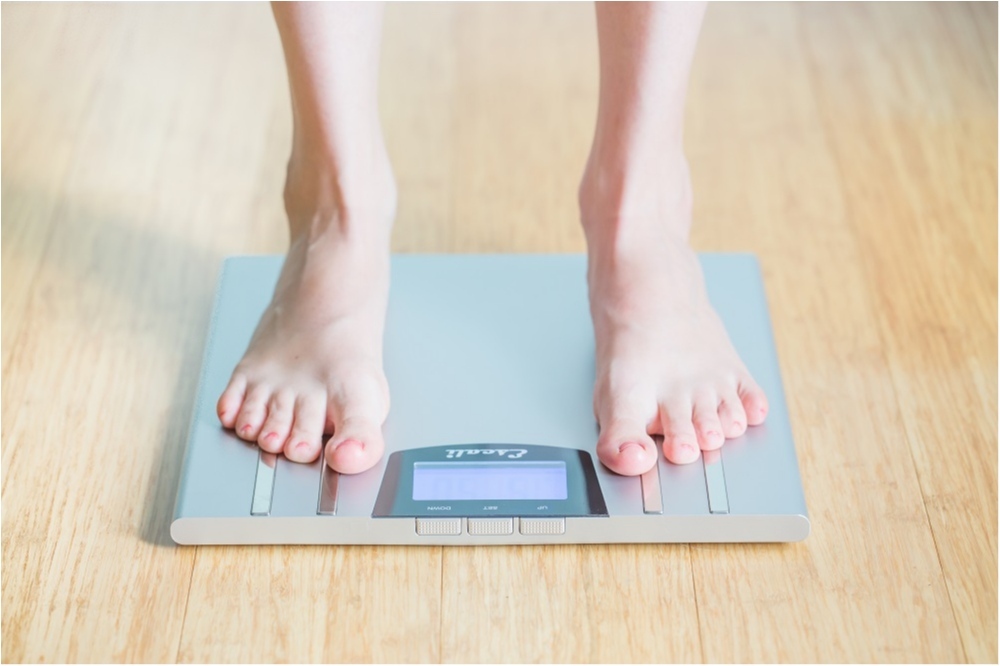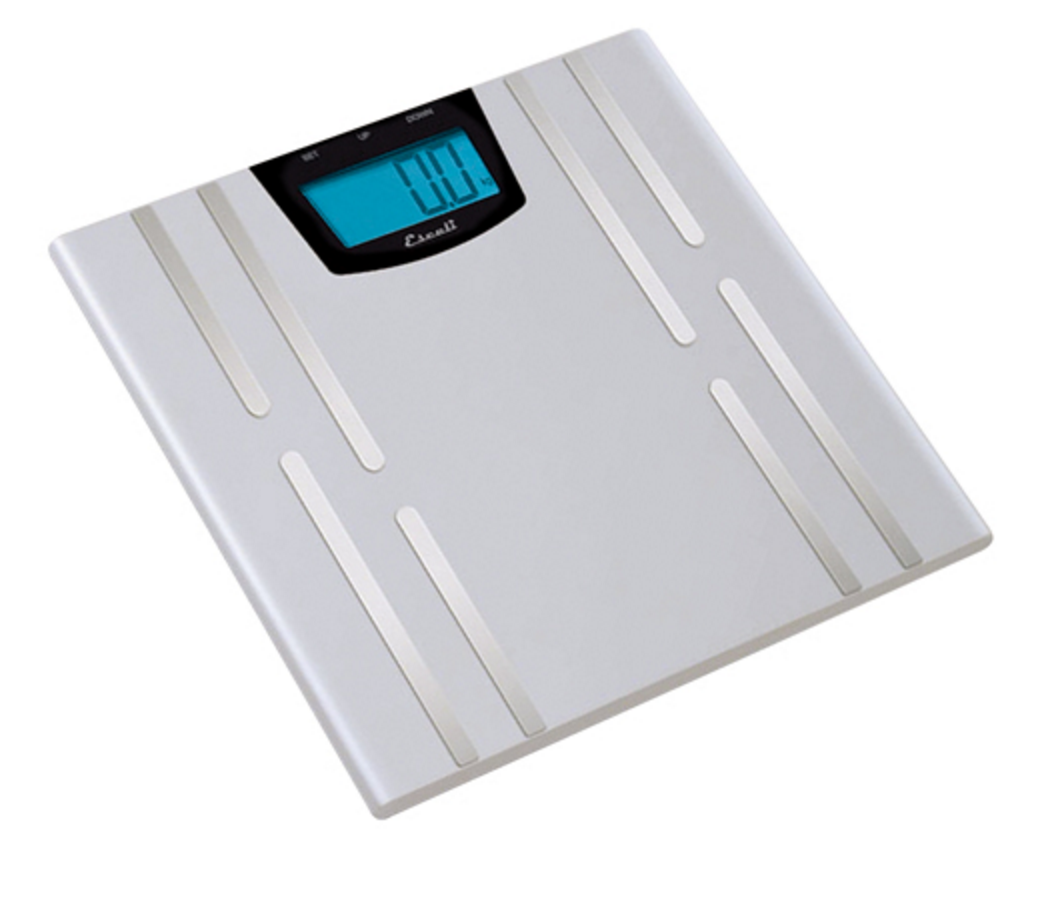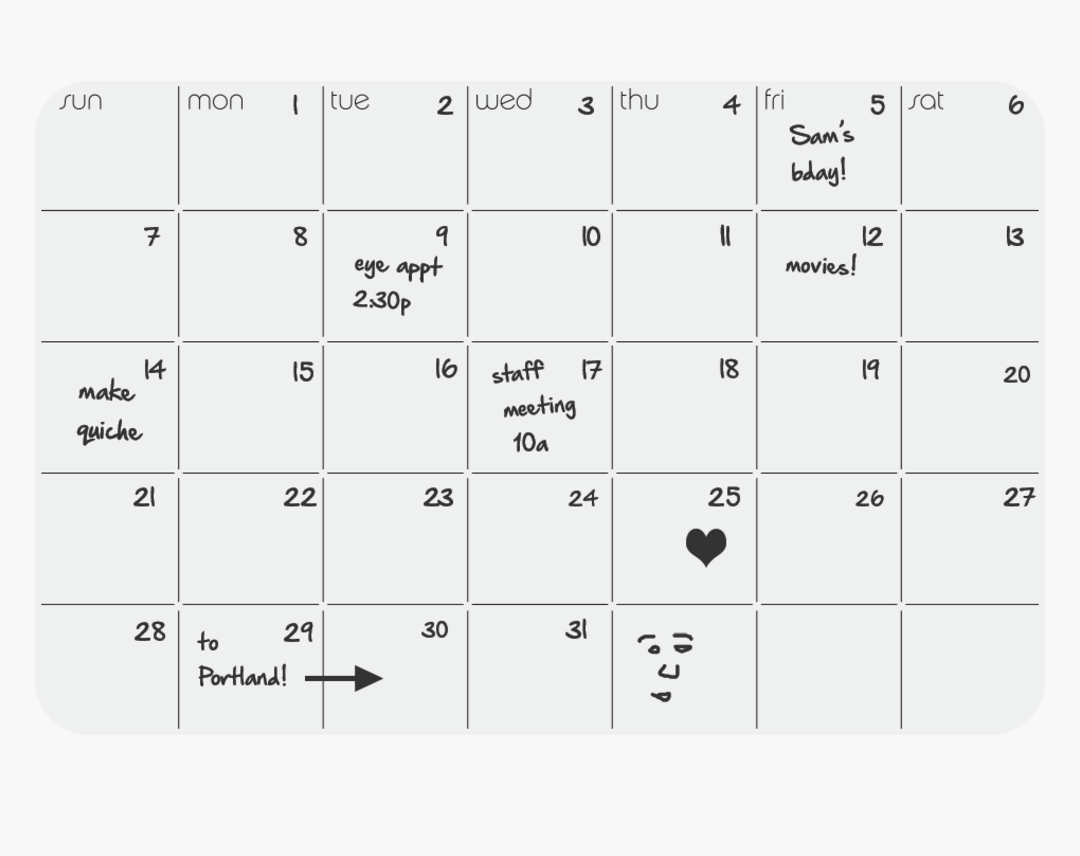
A healthy body is our main goal here. To accomplish this we need a consistent routine of eating healthy and exercising. You’ve heard this over and over again. However, most people simply set goals and track their success by the number on the scale. Well, I’m hear to tell you that the number on the scale isn’t everything.
I can tell you from personal experience that by gauging all of your weight loss success by the number of pounds you weigh, you’re selling yourself short. In the beginning, the number of pounds will drop drastically and this will only encourage you to keep getting healthier. That’s great! However, at some point, you may plateau (meaning weight loss rate of change will be almost flat). The number on the scale will remain the same or even go up, despite all of your efforts to make it go down. That is the point in your weight loss journey that you may give up and we don’t want that!
During my first year in college, I met with a personal trainer to get a good solid run down of what my new healthy lifestyle should look like. I had just finished putting on the “freshman 15” and wanted this new healthy lifestyle change to be my jumping off point. I wanted to get into a healthy routine that I could keep for the rest of my life.
After learning all about healthy foods, the importance of hydration and all sorts of cardio and strength training exercises that I could do in the comfort of my own home, I went on a mission to be the healthiest I had ever been…and then maintain it! I could see the numbers falling off the scale as I started my journey. The encouragement I felt every week when I weighed in felt so good! I was on a role.
Fast forward a few months and I’m still maintaining a healthy lifestyle. I worked hard to eat right and exercise and pushing myself every day. However, week after week when I would check my weight, it would either remain the same or even go up! How could that be? I was the healthiest I’ve ever been, doing all the right things, and even feeling better, yet I was gaining weight?!
Okay. It’s time for a health lesson: Muscle weighs more than fat, or so that’s how the saying goes. Yes, pound for pound, they weigh the same (it’s like saying one pound of oranges weighs the same as one pound of chips). However, one pound of fat (an enormous heap of chips) looks a whole lot different than one pound of muscle (just 3 oranges), e.g, the same mass of muscle takes up a smaller volume than fat. So muscle is more dense than fat, which is a more accurate statement. On top of that, muscle acts totally different than fat. When you have muscle in your body instead of fat, the muscle is still burning calories even after you’ve stopped exercising. Fat, on the other hand, just sits there like a couch potato, causing you all sorts of health issues down the road.
With all of that said, you need to approach success in your weight loss journey differently. While looking at the number on the scale is important, especially for momentum at the beginning, it’s not as vital in the long run. Tracking your percent body fat, hydration, and even your percent of muscle mass, will give you a more accurate and in depth look at your progress and give you a much more realistic view of how you’re doing.
Let’s go back to my personal weight loss journey. I was sitting there a year or so into my new healthy lifestyle and the weight had completely plateaued. I can’t tell you how many weeks I went frustrated that I couldn’t get to my goal weight. Looking back, it was silly of me to be frustrated at those last 5 pounds. When I looked in the mirror, I felt amazing. I was the most toned I had ever been and if I looked back at the photos I had taken of my body before this journey, I could really see the difference. However, my obsession over the number was making me unhappy.
I’ve learned a lot since those college days and now use new technology in my own home to help me better understand my body. I continue to encourage myself to maintain my healthy lifestyle with the use of some simple tools. For one, I got a smart scale. Yes, it’s a genius and didn’t even go to college. The scale tells me more than just my weight. It also measures the body fat, hydration and muscle mass percentages. Instead of relying solely on weight, I’m consistently measuring these three other (and very vital) components of a healthy body. I could be dehydrated and weak and a scale would show me the same weight as if I was hydrated, toned and strong. However, if I measured my beginning self and current self on the smart scale, it would show me a drastic improvement on body fat, hydration and muscle mass. Even as I continue on my healthy lifestyle journey, I can still choose to set short term goals with any of these measurements to have a more accurate end goal to strive to reach.
I also bought myself an activity tracker. I helps me stay on target and is a constant reminder on my wrist to keep moving. Most activity trackers out there give you a goal of 10,000 steps per day and often have some sort of sleep tracker component to them. They serve as a great tool to help keep you active and rested, two integral components of a healthy lifestyle.
Going even further, I’ve created a simple system to help me keep pushing myself long term. I use a monthly calendar to write down my exercise days. This not only keeps me on track of when I successfully exercised, but it also reminds me of when I need to exercise or if I need to exercise more. For example, if I set a goal to exercise at least three times per week, I need to see twelve days worth of exercise in that month. Come mid month, I can look at the calendar and know if I need to step it up and exercise more frequently or if I’m right on track. Visually seeing how many days I’ve exercised throughout the month makes me proud of my accomplishments, too. I filled the calendar with so many days of exercise!
With all of the exercise, comes the need to stay hydrated, as well. Not only will this keep your skin looking better and your insides feeling better, but it will also help you to regulate food intake. I’m completely guilty of mistaking thirst for hunger and eating instead of drinking water. Look at any health tips and you’ll most likely find suggestions to frequently drink water. Since drinking water isn’t always the most glamorous of habits, finding a water bottle that you love makes a difference. You need to want to drink water and if you’re drinking out of a mundane cup or bottle, it just doesn’t get you excited. It’s the same feeling I get when I drink coffee out of my favorite mug or if I get a new workout outfit; it just makes the coffee taste better and makes me want to exercise, respectively! Having your water in plain view around you at all times also serves as a constant reminder to continually drink water. Sometimes you just get tired of plain old water, too. You can always diffuse the water it by adding in some fruit, making a healthy and homemade version of flavored water. Whatever works for you, drink more water.
I’m a real numbers gal, so the more measurements that I can see improvement on, the better. Whether I’m tracking my body fat, miles per minute or days of exercise, these tools help me to be a healthier me every day.











